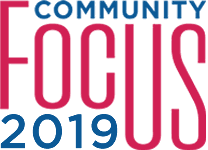A 2018 Pew Research Center report found that one in five U.S. adults get news through social media, and people between age 18 and 29 are more likely to get their news from social media sites than from any other source. Social networks allow misinformation to spread unchecked. The ability to think critically when presented with new information is crucial.
The Springfield-Greene County Library District provides some strategies for finding reliable information from well-researched sources.
Traditional media such as newspapers and cable news channels are one-way conversations from the news provider to the consumer. With social media, the news providers create the content, the user engages with that content through likes, dislikes, comments, and shares, and the social media platform curates what the user sees in the future based on that engagement.
Personalizing what you see is a perk of social media, but it's also a major flaw. Rather than reading well-rounded news stories, you end up in a "filter bubble." Once in this bubble, you'll see only content that you already agree with, becoming isolated from multiple viewpoints and ideas.
Then comes disreputable news sources—fake news sites that intentionally publish hoaxes and false news. These fake news stories often have intentionally inflammatory headlines and, as a result, are noticed by readers and shared widely.
Keeping up with news through Facebook or Twitter seems easy enough, but know what you're signing up for, and be ready to dig deeper. Here are some ways to check the veracity of information.
GO BEYOND THE HEADLINE
- Keep reading: Read the entire article before jumping to any conclusions. Be critical of what you read, ask questions, and verify the information.
- Find out who created the article: Take time to search out the accounts of known and trusted news sources. Addresses ending in .edu, .gov or .org are generally more reliable than those ending in .com or other top-level domains.
- Learn more about the author: Do a search of the author's name to verify credentials. Does the author have the authority to write on the subject?
- Check the sources: If you see an article from a source you don't recognize, don't take it at face value. Check the source and corroborate the story.
- Determine when the article was originally published: Outdated information sometimes enjoys a resurgence through social-networking sites.
- Reverse image search: Fake articles often recycle old photographs. Right-click on the photo in the article and search Google for the image. If you find the same image in numerous articles on different topics, you may be dealing with a questionable article.
- Run it through Snopes.com: Snopes is an independent fact-checking website. Run it through the search box at Snopes.com to see whether it has been debunked.
DIG DEEPER
All of this data is free. The following sources will help you get started.
STATISTICAL ABSTRACT OF THE U.S.
THELIBRARY.ORG/RESEARCHComprehensive statistics on U.S. social, political and economic conditions. The data is compiled and published by ProQuest. The Library provides access to this data in print and database formats.
U.S CENSUS BUREAU
WWW.CENSUS.GOV; FACTFINDER.CENSUS.GOVData from the U.S. Census, gathered every 10 years, is publicly available. The American Community Survey gathers demographic data and is available through the American FactFinder portal.
FBI: UNIFORM CRIME REPORTING PUBLICATIONS
UCR.FBI.GOV/UCR-PUBLICATIONSThis includes four annual publications: "Crime in the United States," "National Incident-Based Reporting System," "Law Enforcement Officers Killed and Assaulted" and "Hate Crime Statistics."
DATA.GOV
WWW.DATA.GOVThe U.S. General Services Administration manages and hosts Data.gov, a repository for federal government information. It provides data sets on topics such as consumer trends, education and public safety.
MISSOURI ECONOMIC RESEARCH & INFORMATION CENTER
WWW.MISSOURIECONOMY.ORGThe research division of the Missouri Department of Economic Development provides data such as average wages by county, cost of living data, unemployment rates, employment projections and more.
MISSOURI DEPARTMENT OF HEALTH & SENIOR SERVICES COMMUNITY DATA PROFILES
HEALTHAPPS.DHSS.MO.GOV/MOPHIMS/PROFILEHOME>This site includes statistics and reports on alcohol and drug abuse, child health, chronic disease, emergency room visits, hospitalizations and more.
MISSOURI DEPARTMENT OF ELEMENTARY & SECONDARY EDUCATION SCHOOL DATA
DESE.MO.GOV/SCHOOL-DATAFind data related to college and career readiness, Missouri school districts, early childhood education, educators and special education.
PEW RESEARCH CENTER
WWW.PEWRESEARCH.ORGThis nonpartisan "fact tank" measures public opinion on topics including gun ownership, gay marriage and economic conditions. The public also has access to the data sets used to create them.
